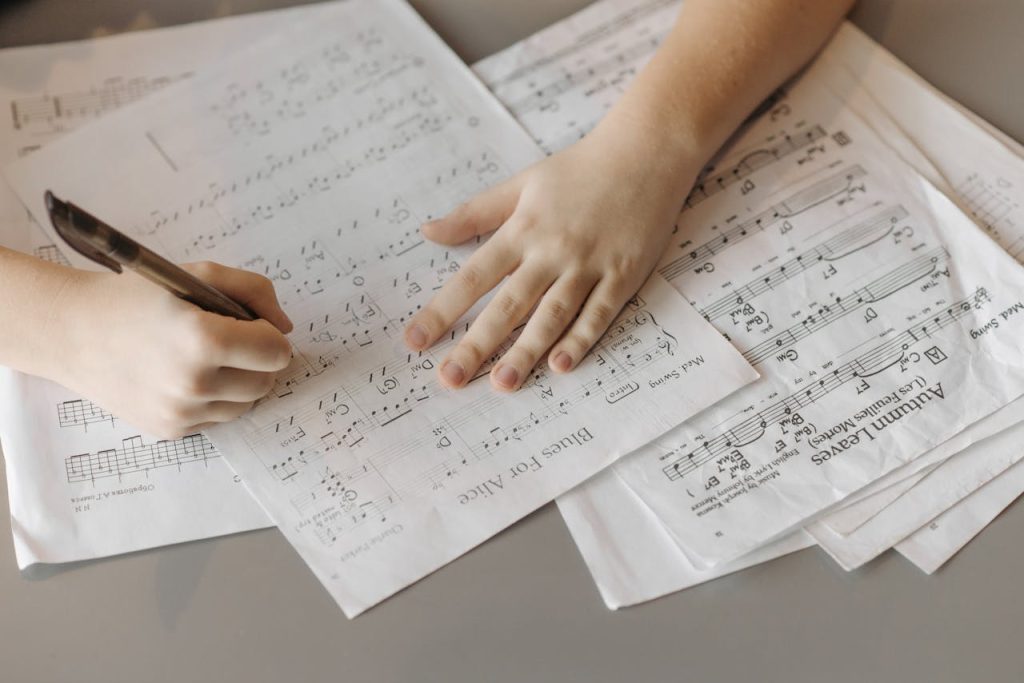Learning to play the piano is a journey that requires dedication, patience, and consistent effort. While many students dream of effortlessly playing their favorite pieces, the key to achieving this lies in one simple yet powerful habit – daily practice. Whether you are a beginner or an advanced player, setting aside time each day to play can make all the difference in your progress.
1. Builds Muscle Memory and Coordination
Piano playing is both a mental and physical activity. Your fingers, hands, and even arms must work together seamlessly to produce beautiful music. Practicing daily helps reinforce muscle memory, allowing you to play with greater ease and accuracy over time. Without regular repetition, your fingers can forget what they have learned, making it harder to improve.
2. Strengthens Sight-Reading Skills
The more frequently you practice, the better you become at reading music in real time. Sight-reading involves quickly recognizing notes, rhythms, and musical patterns, and daily exposure helps your brain process this information more efficiently. Over time, you will be able to play new pieces with confidence and less hesitation.
3. Enhances Musical Expression
Music is more than just playing the right notes; it’s about expressing emotion and telling a story. Regular practice allows you to explore dynamics, phrasing, and articulation, transforming simple melodies into expressive performances. When you play every day, you develop a deeper connection with the music, making it more meaningful and enjoyable.
4. Improves Focus and Discipline
Learning an instrument requires focus and self-discipline- two skills that extend beyond music and into other areas of life. Setting aside time daily to practice helps develop a strong work ethic and improves concentration. Even just 20-30 minutes a day can have a significant impact on both your playing and your ability to stay committed to long-term goals.
5. Prevents Skill Regression
Have you ever gone a week without practicing and found that a piece you once played flawlessly suddenly feels unfamiliar? Skipping practice for long periods can cause setbacks, making it harder to regain progress. Daily practice keeps your skills sharp and prevents the frustration of relearning what you have already mastered.
6. Builds Confidence and Reduces Performance Anxiety
The more often you play, the more confident you become. Consistent practice prepares you for performances, recitals, or even casual playing in front of friends and family. As your skills improve, your anxiety about playing in front of others decreases, allowing you to enjoy sharing your music.
7. Makes Learning New Pieces Easier
A solid foundation of technical skills and familiarity with different musical styles makes learning new pieces faster and more enjoyable. Regular practice strengthens your ability to break down challenging sections, master tricky rhythms, and adapt to various genres of music.
Tips for Effective Daily Practice
Set a schedule- Find a time each day that works best for you and stick to it.
Start with warm-ups- Finger exercises and scales help prepare your hands and mind for playing.
Break pieces into sections- Instead of playing an entire piece from start to finish, focus on difficult passages and practice them slowly.
Use a metronome- Developing a steady sense of rhythm is essential, and a metronome can help you stay on beat.
Stay patient- progress takes time, so don’t be discouraged by mistakes. Every practice session moves you forward.
Conclusion
Daily piano practice is the key to becoming a confident and skilled musician. It strengthens your technique, enhances your musical expression, and helps you stay motivated on your musical journey. Whether you are practicing for a recital or simply playing for enjoyment, consistency will always be your best teacher. So, sit down at the piano today and make every note count!

